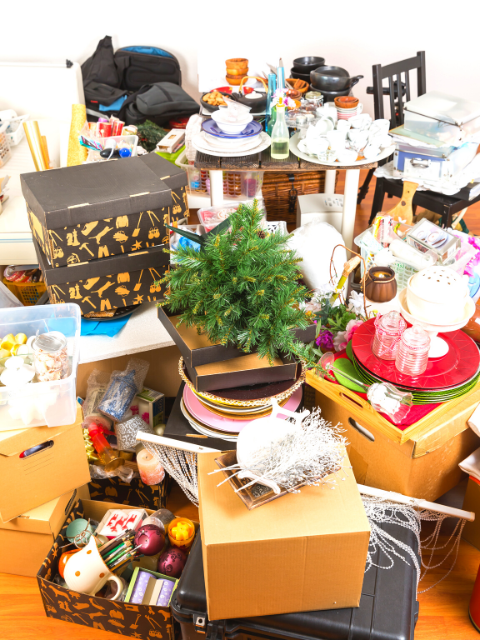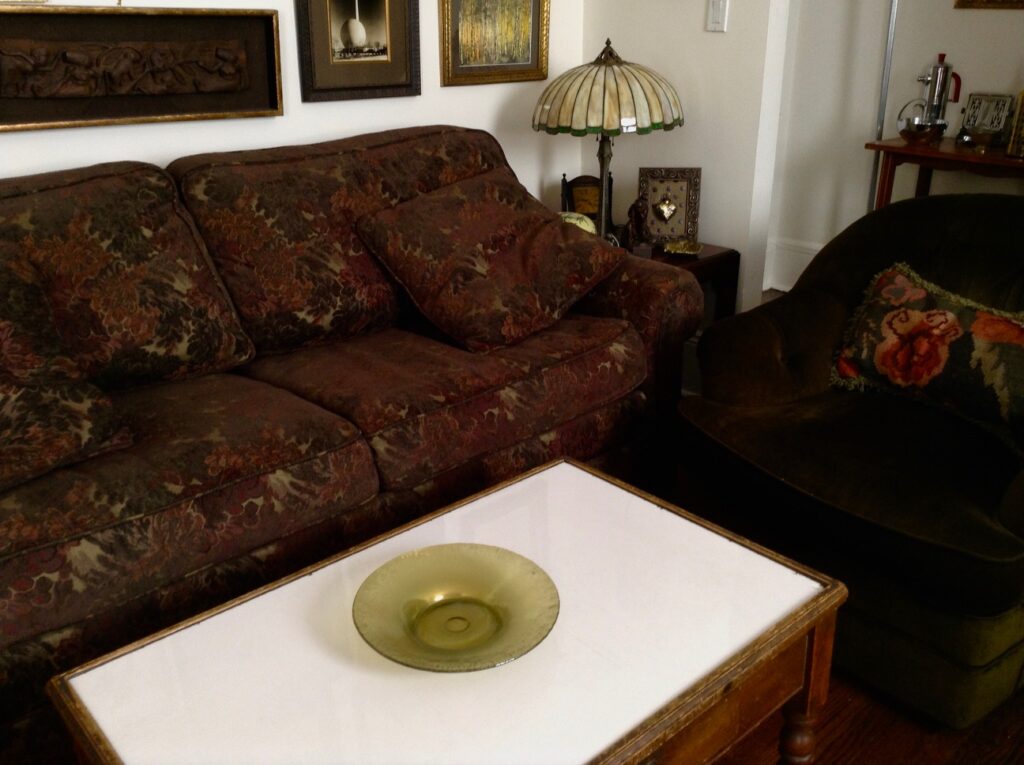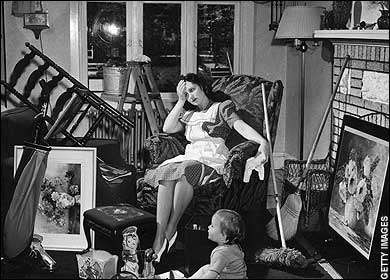 All of us have dealt with clutter .Sometimes, however, we can find ourselves in a paralyzing situation, I call that a clutter emergency, This blog is a how-to help.
All of us have dealt with clutter .Sometimes, however, we can find ourselves in a paralyzing situation, I call that a clutter emergency, This blog is a how-to help.
It can happen to anyone, no matter how neat our living quarters. At one time or another, any one of us could be at risk. We can find ourselves on the brink of living in a “thickly settled” object environment. I call this “sludge-living.” Our domicile may be initially organized, but any random life change can push us toward sludge. It could be a temporary illness, a move from one home to another, a natural disaster, or a partner’s scarcity mentality. It could be the bounty of an inheritance, or simply the blues from the pressures of life.
That sludge-living has emotional and physical effects is beyond question.
A cluttered environment can be a symptom of something amiss as well as a contributing factor to troubles. Clutter robs us of energy through the restless eye movements we experience as our brains try to process excess stimuli[1], leaving no place for the eye to rest.
According to the principles of metaphysical decorating, clutter also affects us due to our energetic relationship with our objects. When we send our objects love, gratitude and joy, they send those feelings right back to us. When we are overwhelmed with unwanted objects, we experience a whole host of unpleasant feelings. They can be irritation and subtle tugs of unprocessed grief, guilt or fear of scarcity, which leads to feelings of depletion.
A Typical Situation
My friend’s Uncle Bill and Aunt Jane offered a cautionary tale. Bill is physically disabled and Jane is a borderline hoarder. Though their apartment had never been tidy, a broken water pipe heralded its descent into complete squalor. They bagged up all their bedding, clothes and paper items to move them away from the flooded area Then, they never got around to moving them back.
One year later, the bags were still heaped all over the apartment. Added to this were piles of scholarly journals, broken appliances, and anything else that was not in daily use. There was hardly a place to sit down. The couple complained that they were being suffocated by all the stuff,
The task of ridding themselves of it, however, overwhelmed them, a terrible paradox. With no space, we cannot draw on the energy and clarity that space provides. With no energy and clarity, there are no means to create space. This is why clutter problems generally go from bad to worse.
The solution to this predicament is to begin very modestly, by creating a small island of order in an ocean of chaos.
Creating an Energy Island
For Bill and Jane, the island consisted of a couch, an easy chair and a coffee table. I instructed them to remove all other objects from this area. They could just throw them temporarily on another clutter heaps on the other side of the room. Then they needed to give the furniture and floor beneath a thorough cleaning.
They were permitted to place just one decorative object on the coffee table. It could be a vase of flowers or a bowl of fruit, preferably of one color.[2] They could temporarily bring other objects into this seating area..As soon as they got up, they had to clear away whatever they’d brought with them. In this way their area didn’t get overloaded with their devices, a notebook, a magazine, a cup of coffee.
As I had expected, the couple found that they were spending more and more time in that area, even though the TV and phone were in the bedroom. Relaxing in that refuge began to restore their depleted energy.
Enlarging the Island
Next, I invited them to look around the rest of the room while sitting on their “energy island.” They were to notice anything that could be obviously discarded. To go through the bags or dig through the piles was too ambitious at this point. All they were to do was notice whatever happened to be floating on the surface of their ocean of chaos. The contrast with the well-being they felt on the island made it easy to make more decisions.They perceive what drained them and were able to part with unneeded items, a few at time.
Once Jane and Bill were feeling a bit better, I asked them to modestly increase the useable space in the room. They could either enlarge the existing island or creating another island to be seen from the first one. Any items removed from this new area could simply be piled on one of the clutter heaps.
After a month of this new lifestyle, the couple managed to reclaim three- quarters of the room. They also regained much of the energy the mess had been draining from them. It is amazing how easy it is to dispose of copies of The National Geographic and unread New York Times when one feels energized.
When my husband and I return from our country house to our small city apartment, I often feel overwhelmed by the sheer number of objects to be dealt with. There is unopened mail, clothes to be hung, and food to be refrigerated, There are electronics to be set up, and books, papers and art supplies to be put away. Our tidy apartment immediately becomes chaotic upon our arrival, so I follow my own advice.
I clear off the couch and two chairs. I wash the coffee table and the surrounding floor. At the center of the table, I place a green, translucent dish. As soon as I banish from my mind all the other tasks that need doing, I sit down to gather my island energy. It works every time.
***
[1] The brain is like a computer on steroids. It processes ten million pieces of information per second to deal with this overload. It chooses efficient ways to organize information known as the Gestalt Laws of Organization. One configuration is the Law of Similarity in which the brain commands the eye to fixate on similar stimuli to make sense of what it sees. A clutter ocean is overwhelming because of the random placement of similar stimuli.
[2] I prefer fruit of the same color because it doesn’t over stimulate the eye via the Law of Similarity. A bouquet of flowers would also would be better as one uniform color but it is not absolutely necessary, for the Law of Proximity seems to dominate the Law of Similarity here, and the bouquet is seen as one unit.

